Don Curry sees Mount Ararat
Được phát hành: 01.07.2023
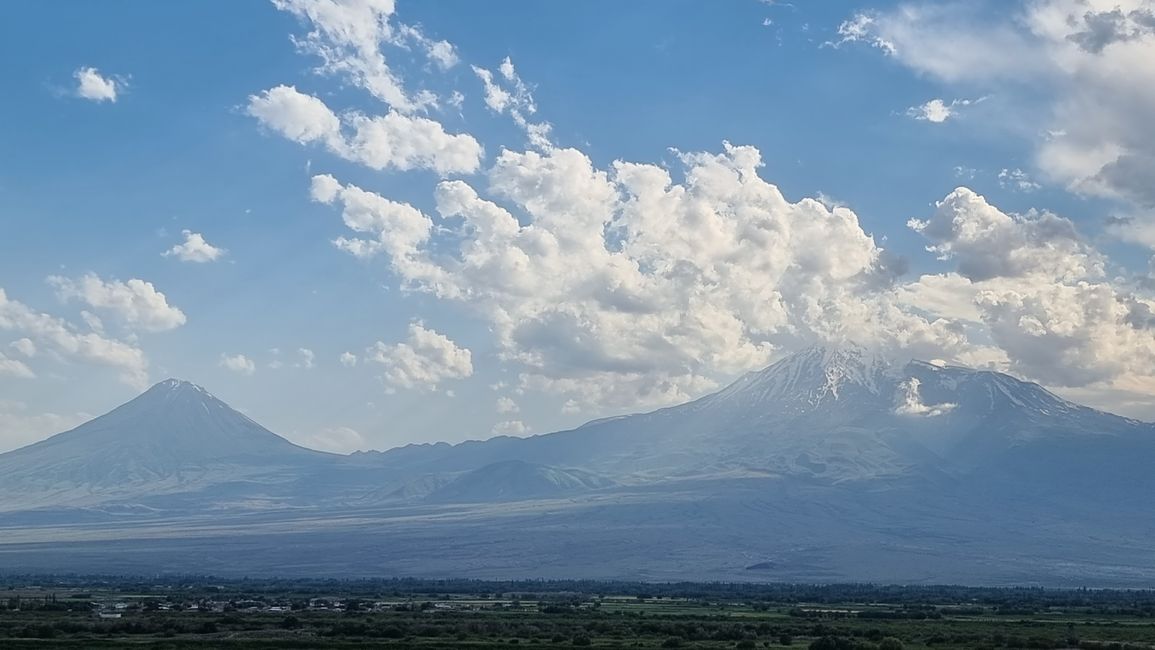
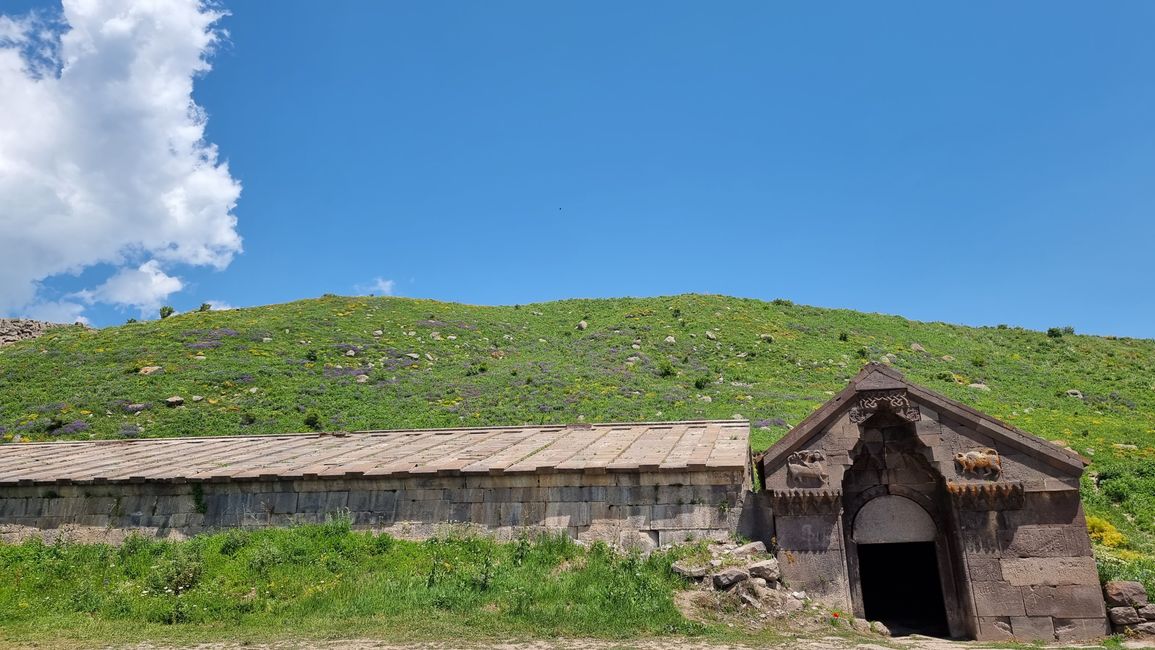
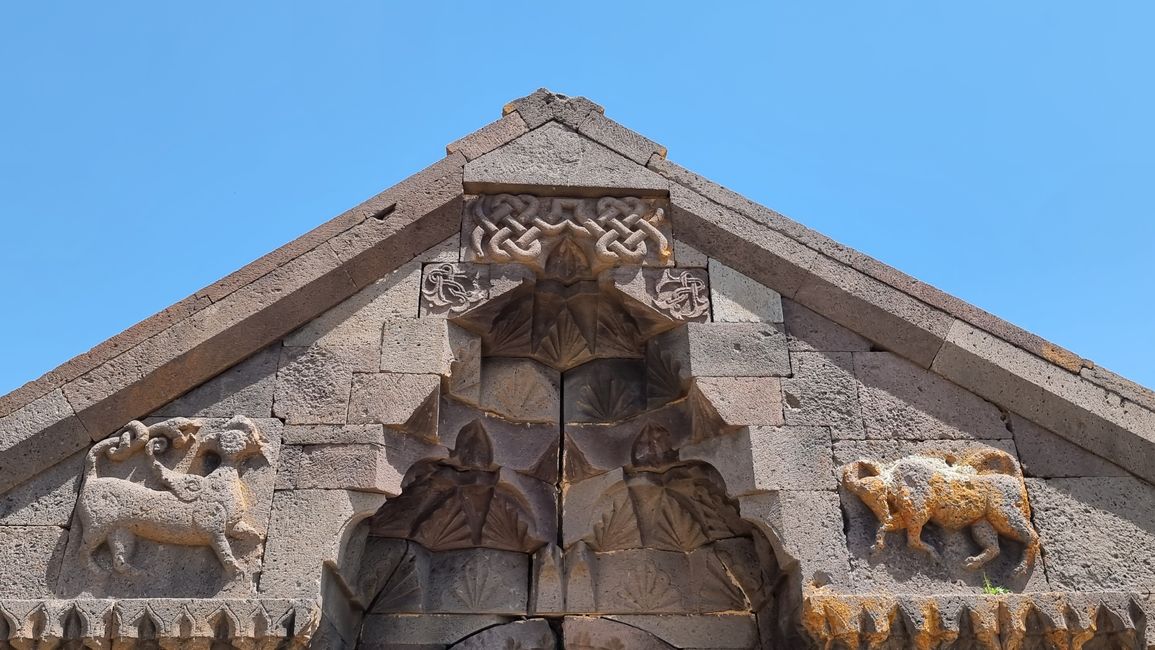
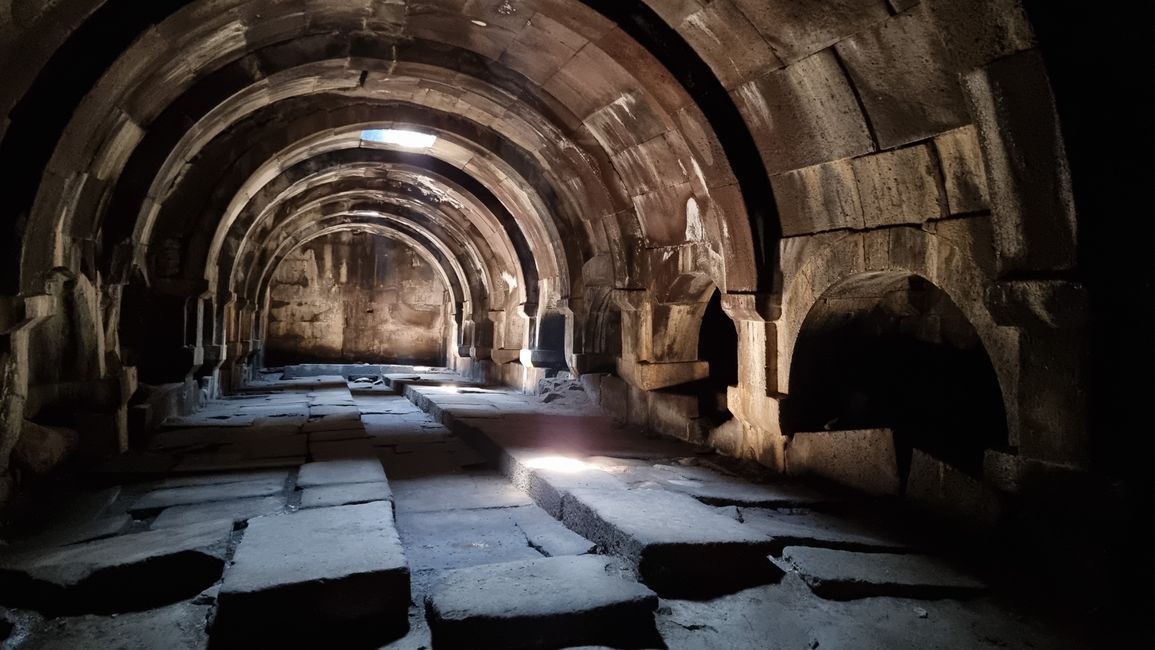
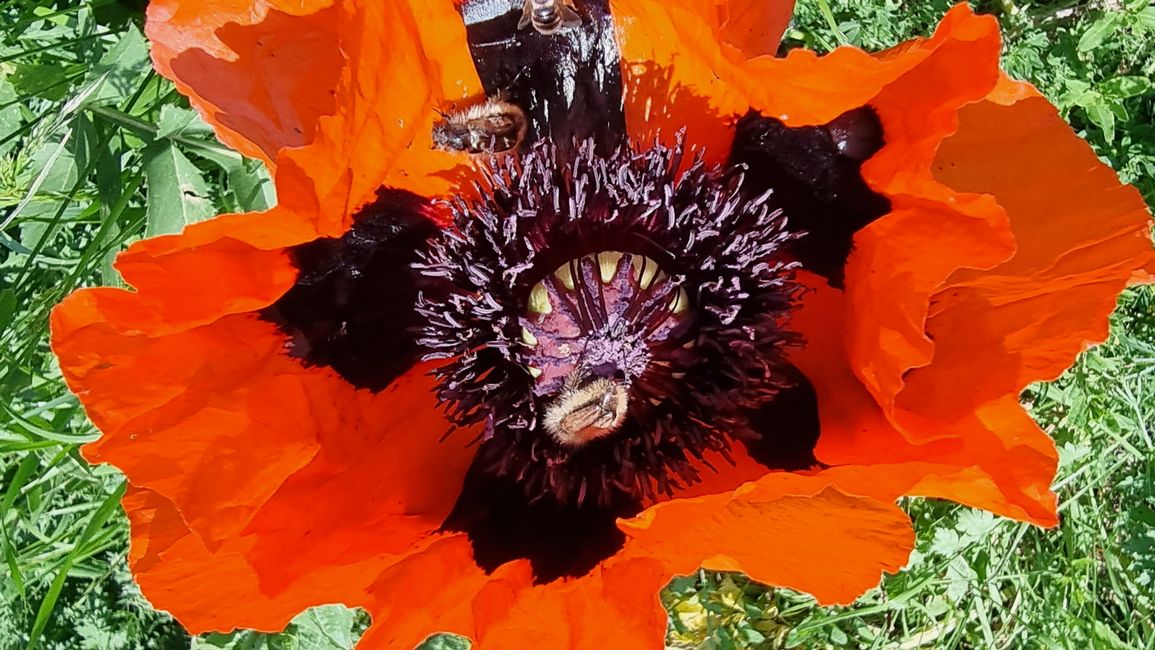
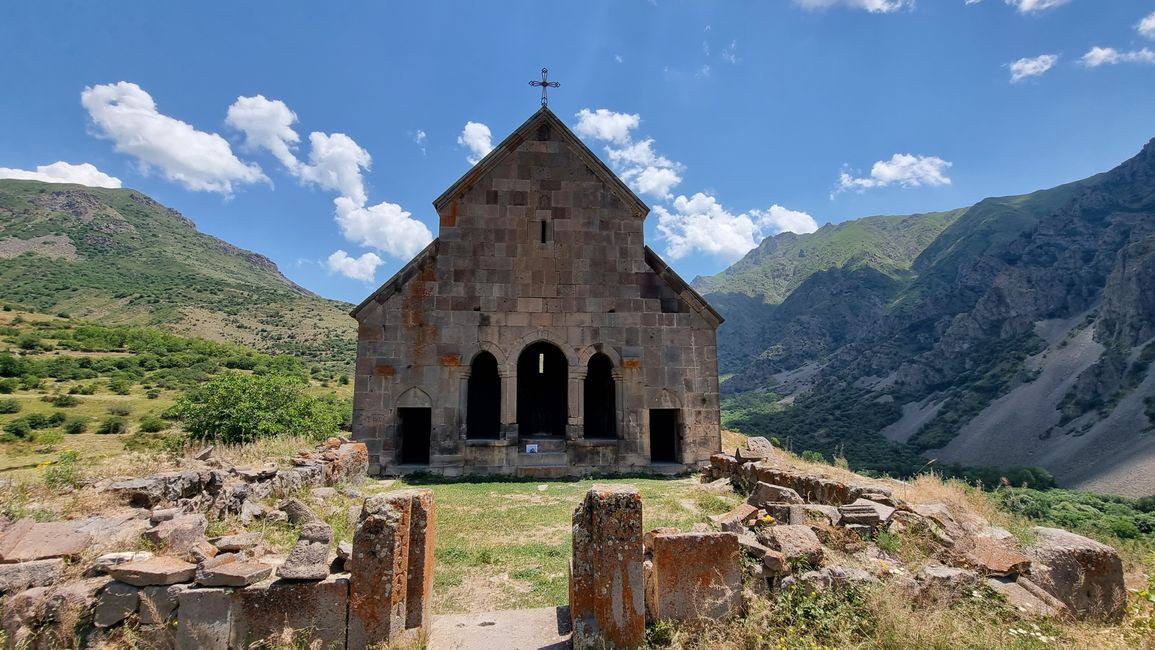
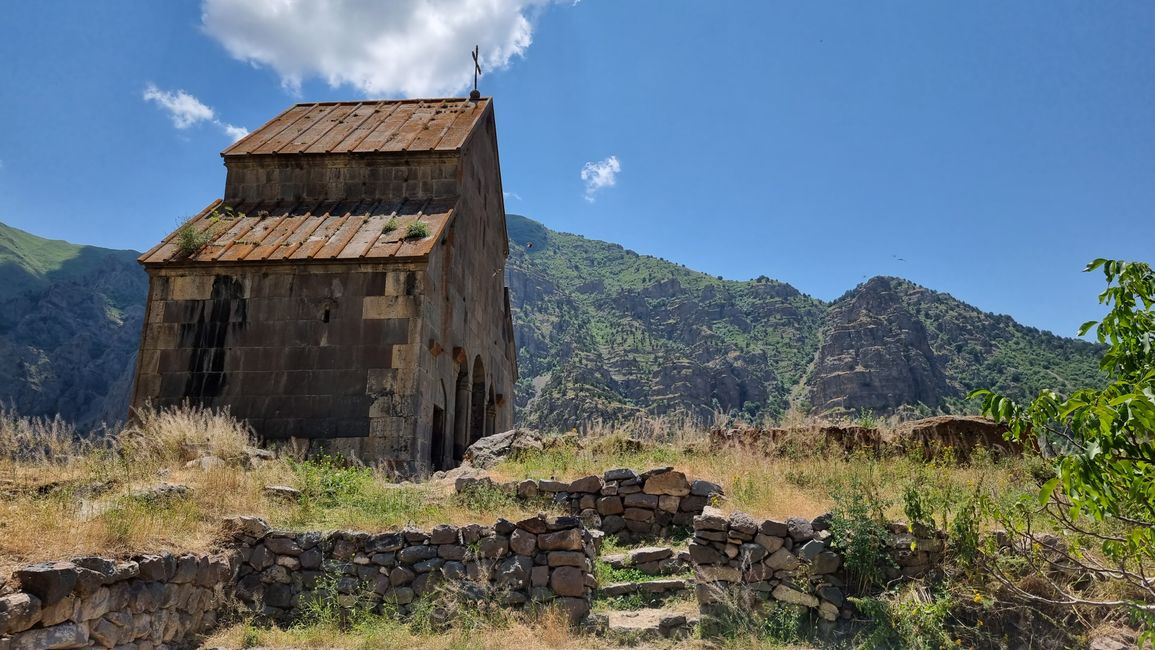
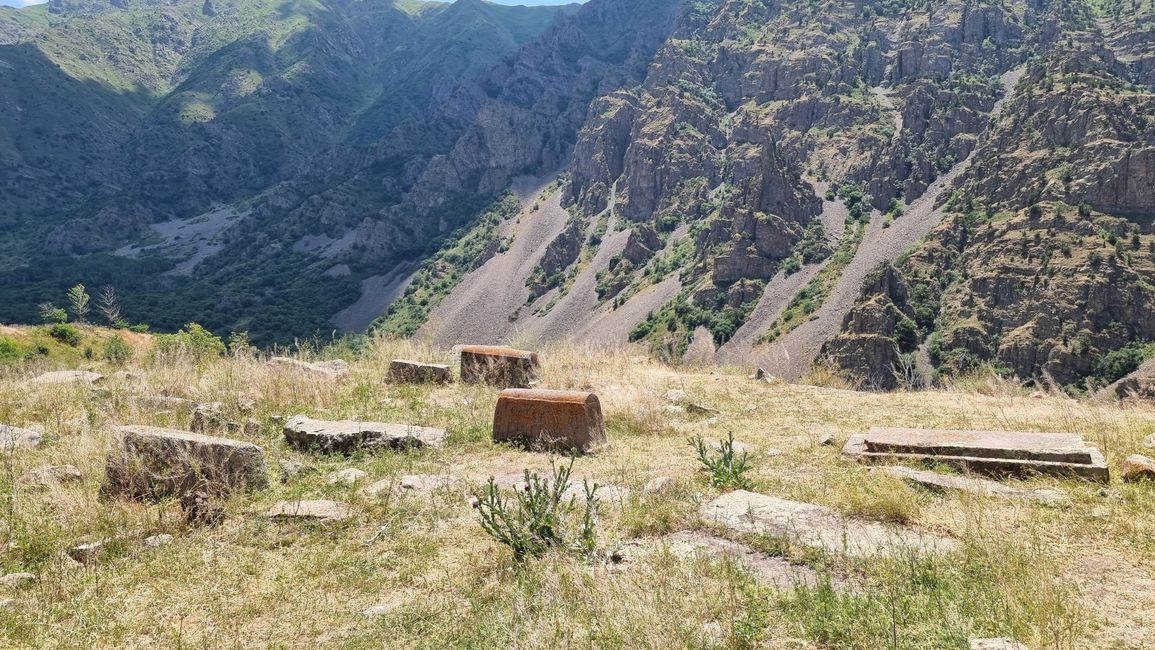
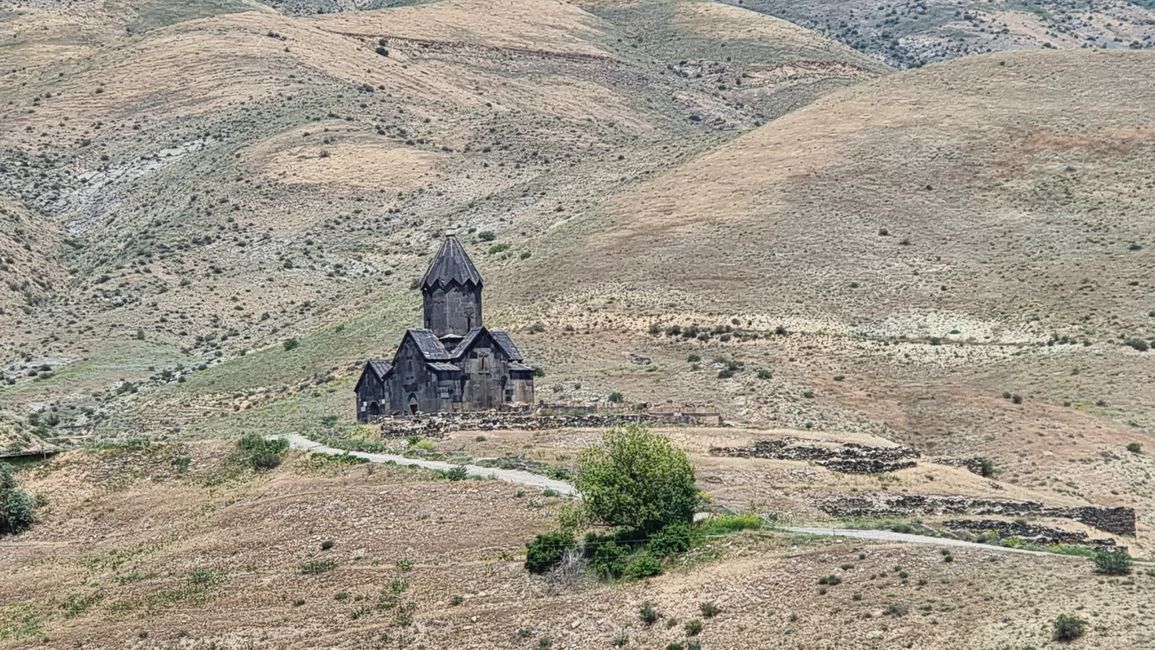
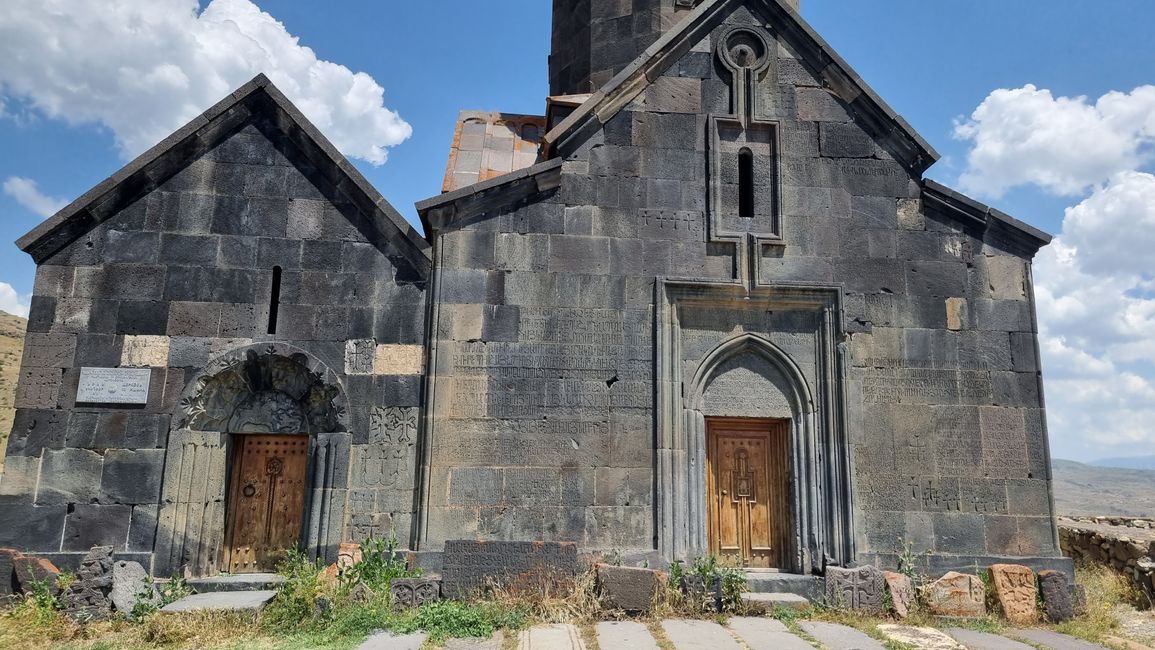
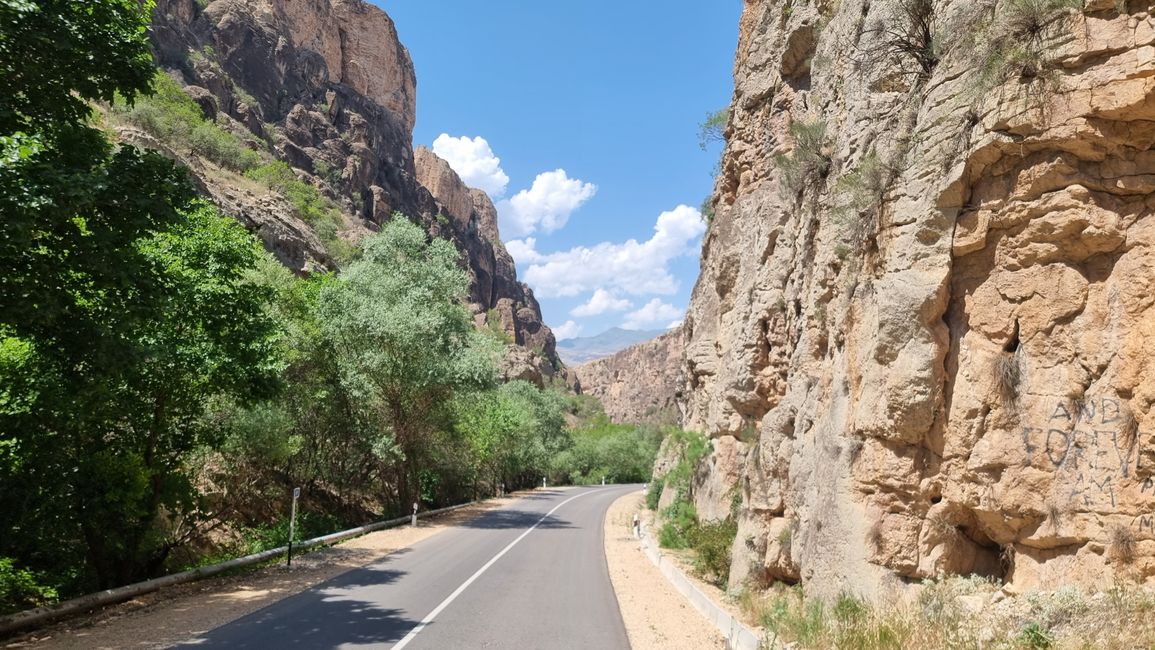
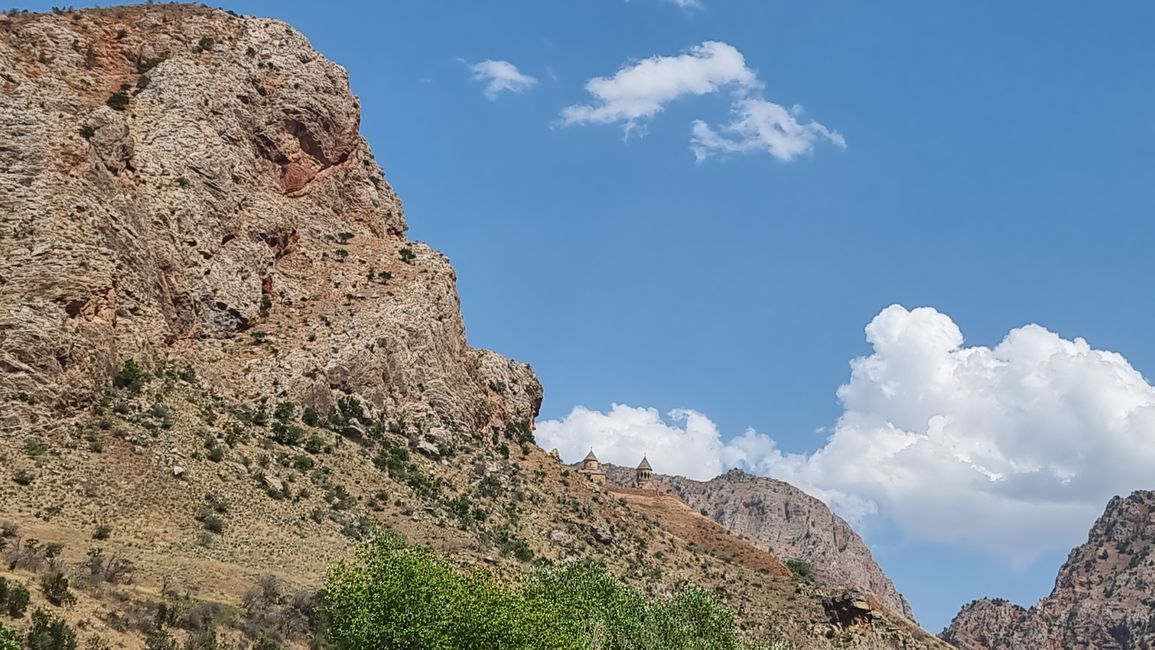
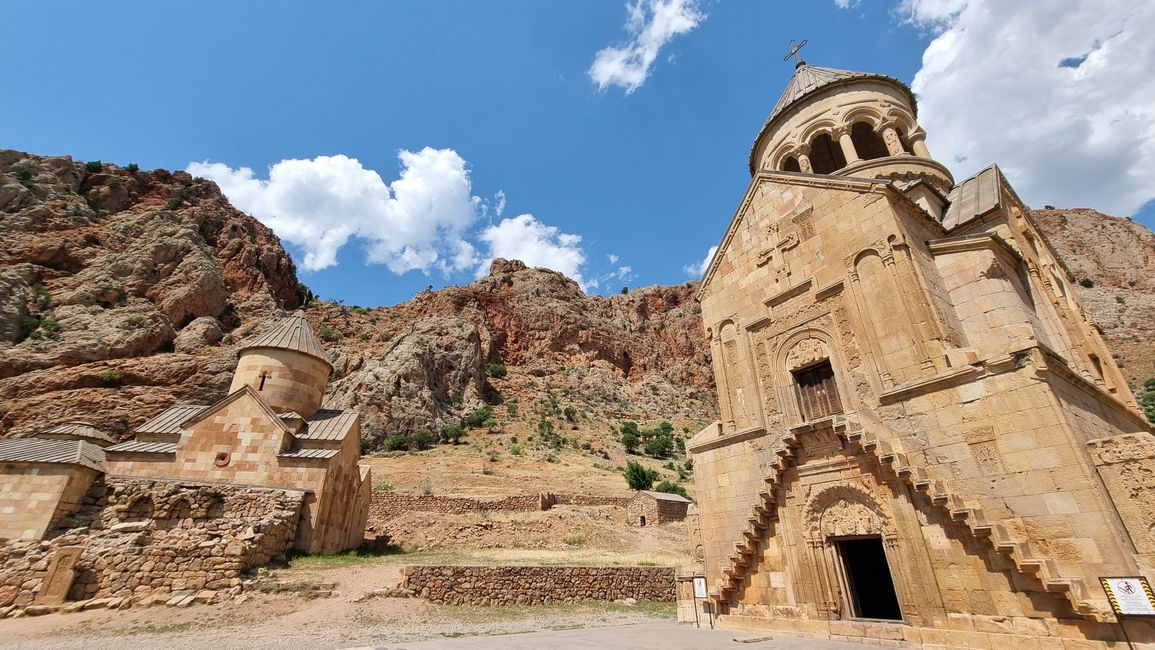
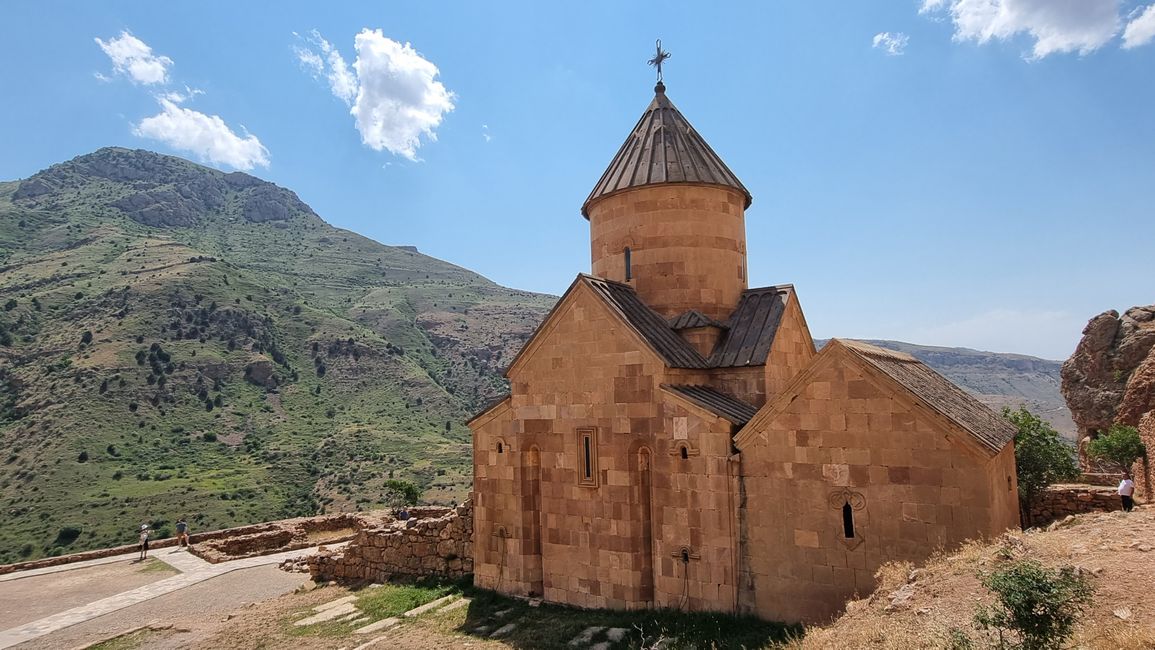
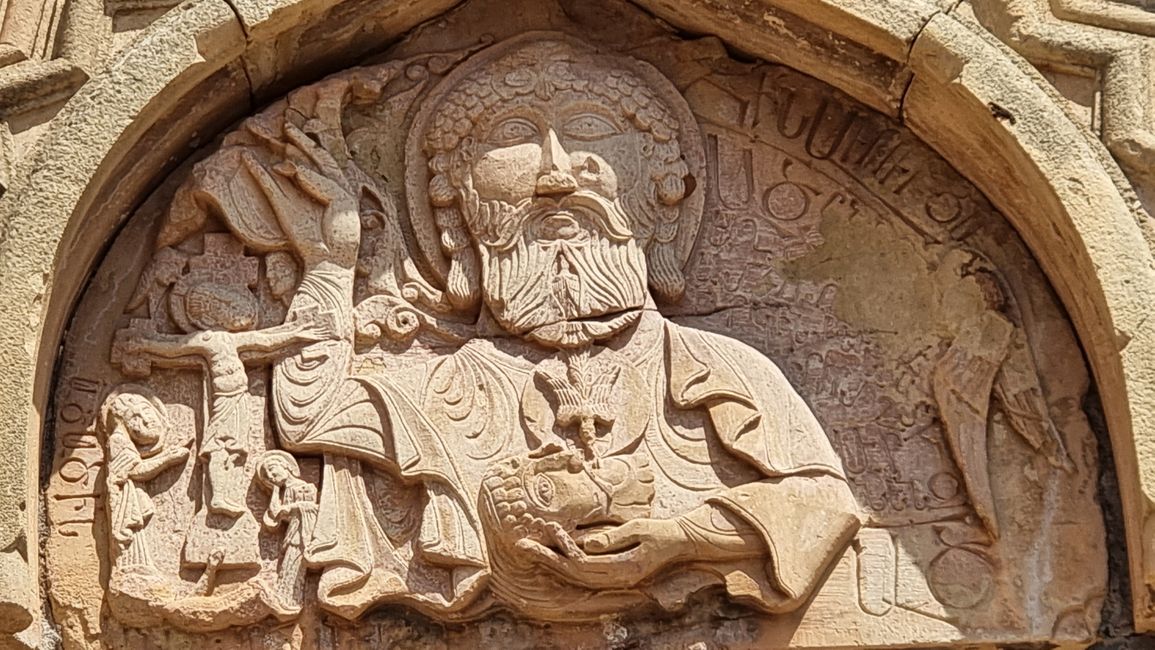
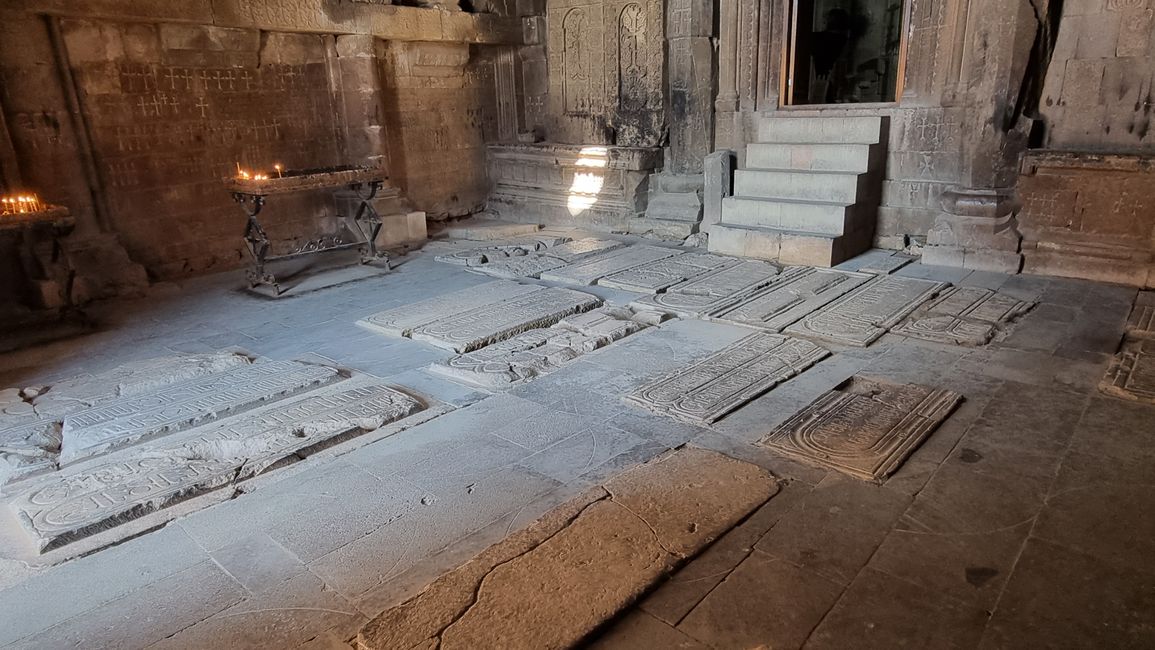
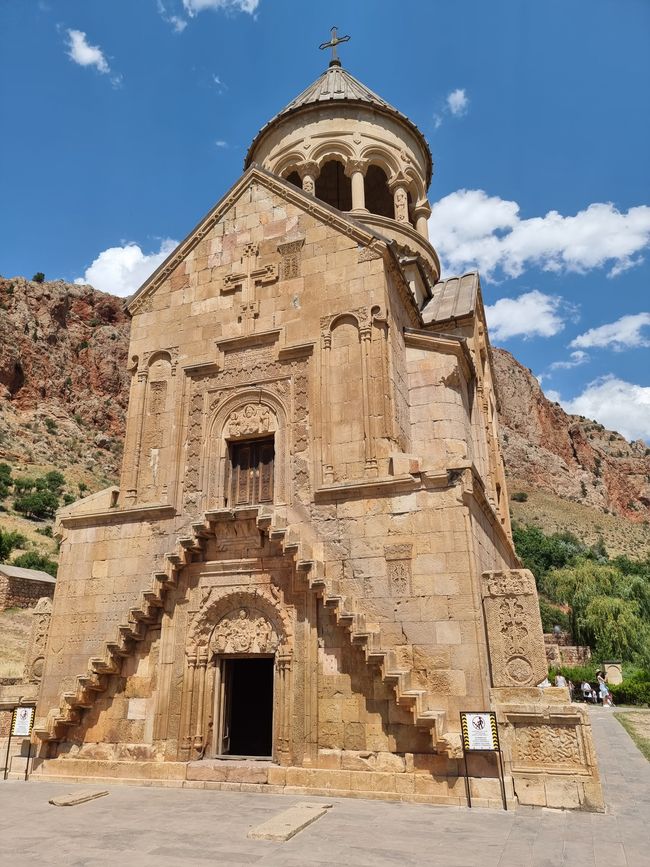
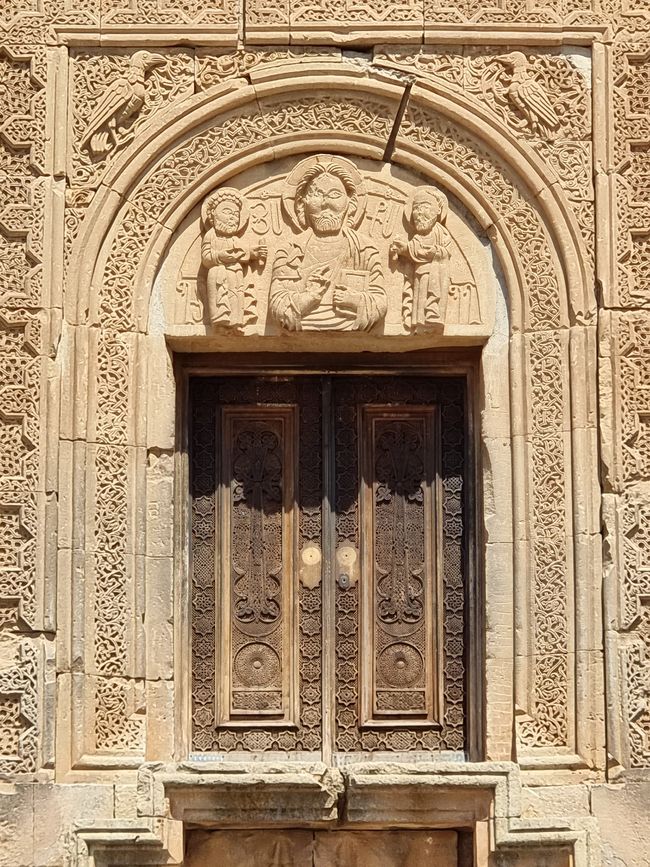
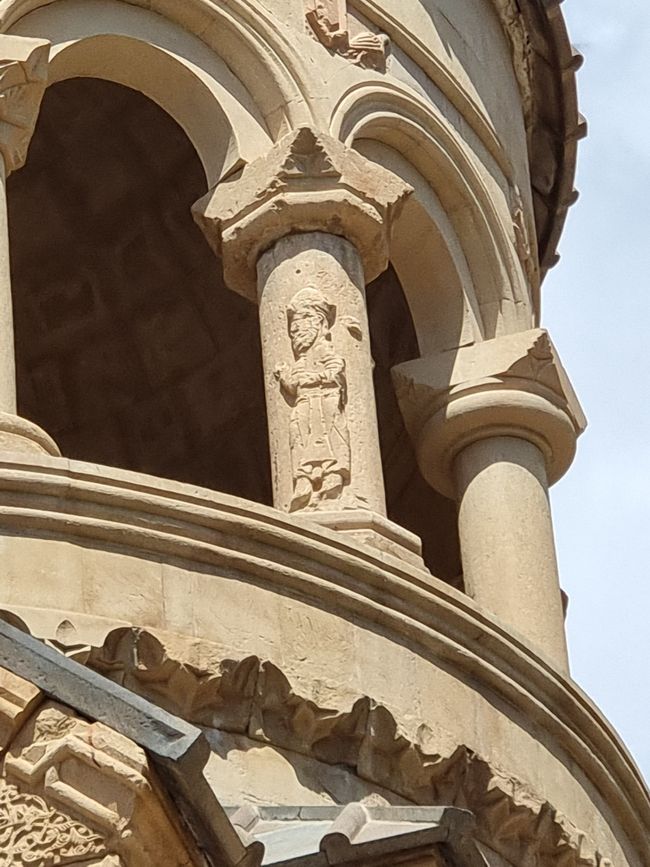

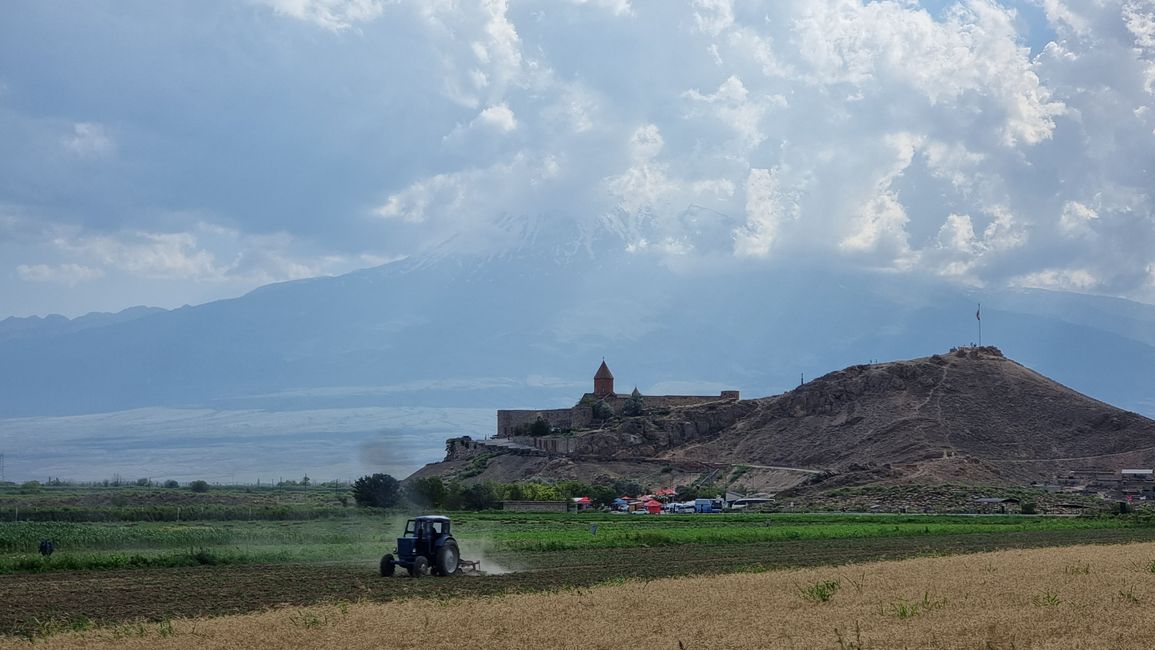
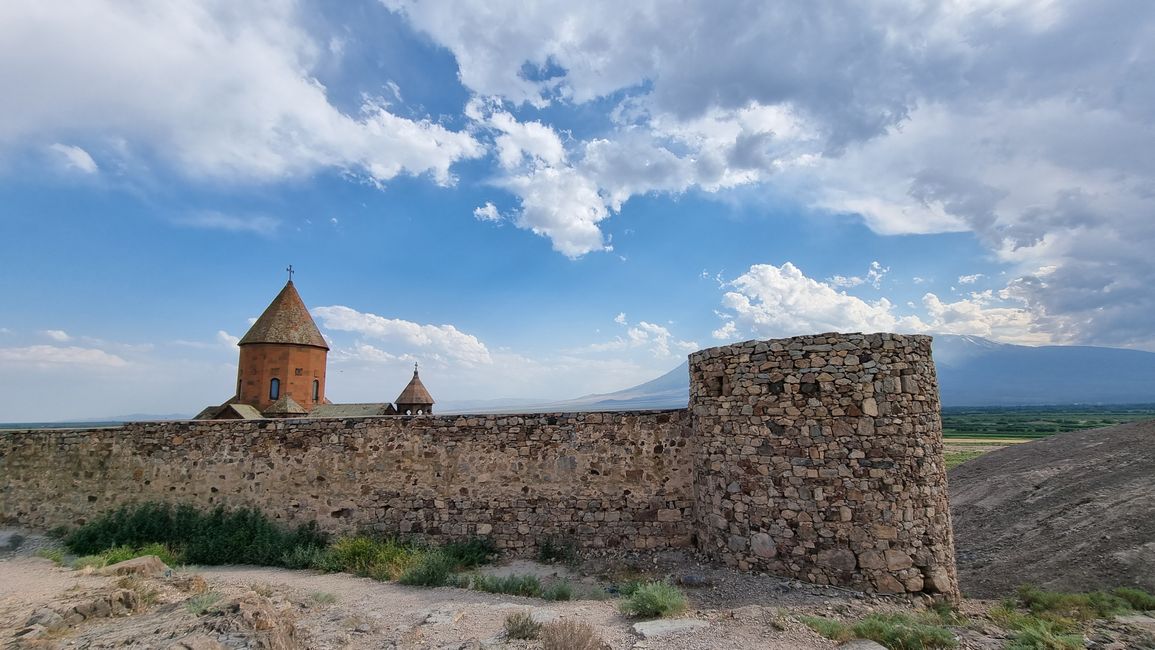
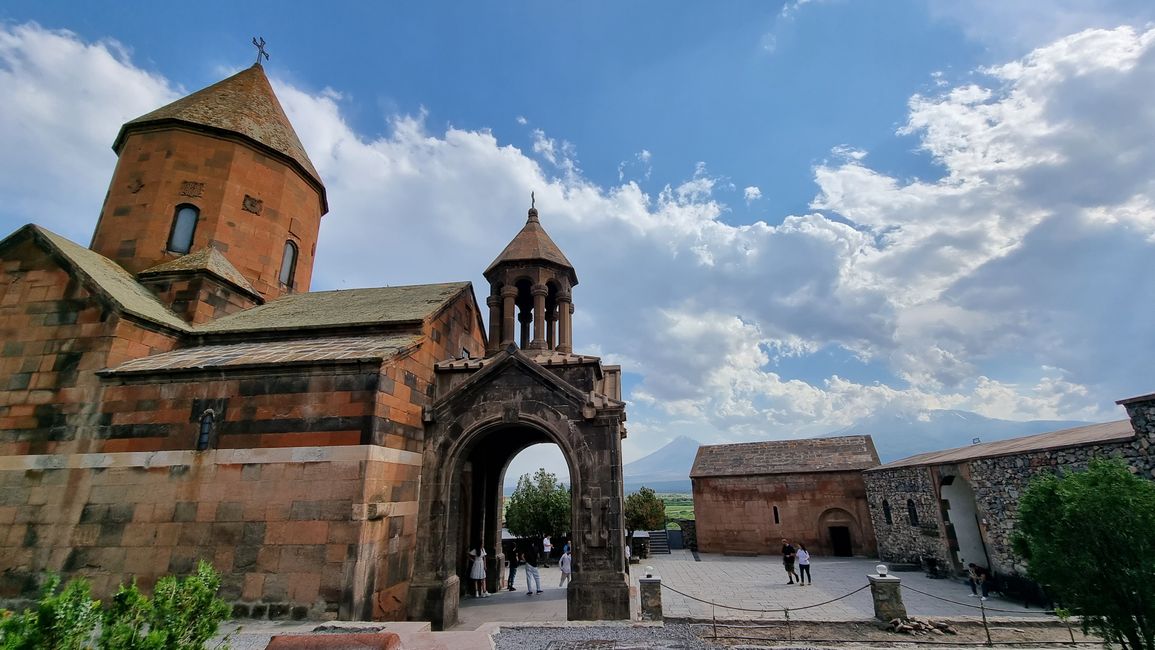
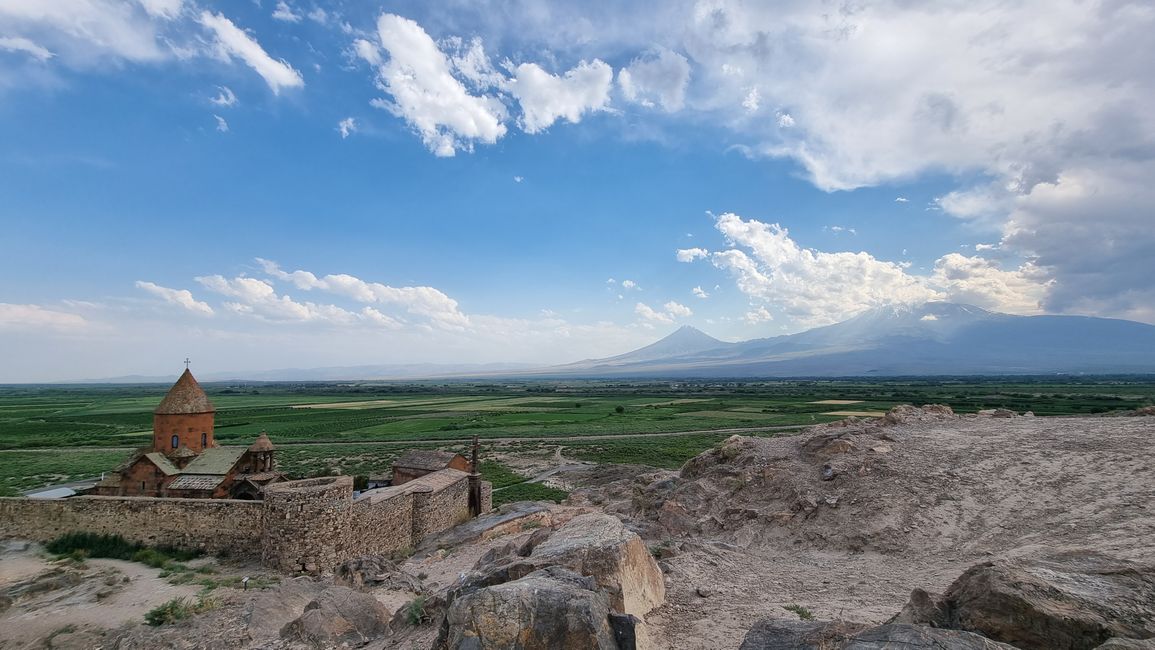
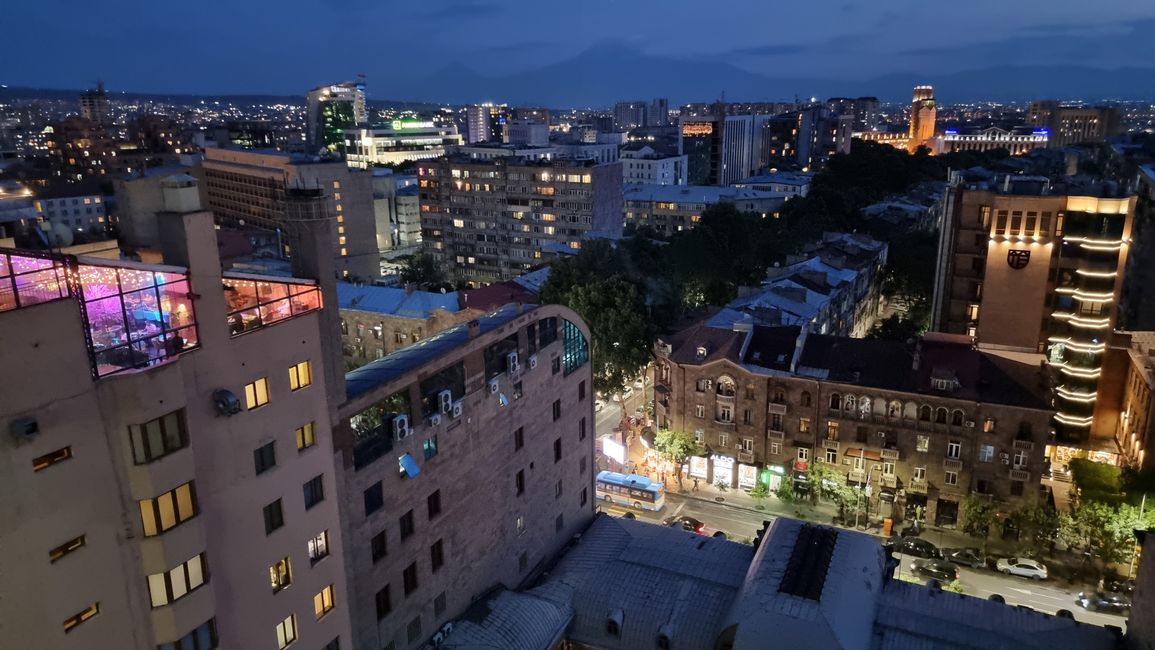
Don Curry knows that traveling always means saying goodbye. Those who want to hold on, who want to preserve, are condemned to stand still. The dynamics of traveling lead onwards and leave places, people, experiences behind. But one never sets off with empty hands, empty hearts - from every stop on a journey one takes experiences, replenishes memories and thus continues. And sometimes one returns. Sometimes there is a reunion...
Don Curry always enjoys it when he has the opportunity to visit the breakfast buffet at a hotel several times. On the first day, he curiously explores the unknown, on the second day he can take what he really likes. So he reached for the sausage goulash again, which was accompanied by dill potatoes today, along with some omelette, lavash bread, butter, and cheese. Then he packed everything up and left his little hut by the lake. The Lavash Hotel could be considered one of the cheapest accommodations during this trip, but also one of the most impressive.
Don Curry already knew the first 50 km of today's route from the previous day. At the southwest corner of Lake Sevan, Xerra turned off to penetrate into the mountains. Along a initially very bad road, some sections of which were already under construction, Don Curry made slow progress until he reached the section of the road that had already been completed. In these treeless heights, seemingly endless meadows of wildflowers spread out, adding additional colors to the pleasant green of the landscape. Shortly after reaching the highest pass of the route, Don Curry arrived at his first sight of the day, the Orbelian caravanserai, located at an altitude of 2480 meters. In this completely uninhabited area of Armenia, this facility served as a safe intermediate stop and accommodation for traders and caravans as part of the Silk Road in the Middle Ages. The building adorned with reliefs includes two large, almost cave-like rooms with few windows, to protect against all the adversities of nature.
In the next valley, characterized by fascinating rock formations, Don Curry headed for the village of Jeghegis; here and in the vicinity, three medieval churches have been preserved, all located above the main road and only accessible via narrow dirt tracks. Don Curry decided to park Xerra on the main road and walk the 1 km path to the most important of these churches. Why do churches always have to be so high up?, he wondered breathlessly. He also worried about how he would deal with potentially aggressive village dogs who would have no understanding for art-interested foreigners. But the only active dog in the village was waiting right at the church. As in Georgia, the local dogs have no fear of contact. They love to snap at shoelaces, causing you to almost stumble when they pass right by your legs. But this is only an expression of their curiosity and playfulness; as long as you show no fear, you get along well with this kind of dogs. The dog did not want to climb the steps to the church and soon left Don Curry alone. The Zorats Church has a unique feature among all the numerous churches of Armenia. It seems to have been a kind of open-air church in the midst of the intoxicating nature of the surroundings. While there are foundation walls of a clearly recognizable church space, only the altar area with the apse had a solid stone roof. Whether the rest of the church once had a wooden or straw roof has not yet been clarified. So today, on the hill, there is a church of usual width and height, but it is only 5 m long and open on one side. Even Don Curry always finds something unique and incomparable on his trips.
He could already see that the landscape had fundamentally changed. While northern Armenia down to Lake Sevan is characterized by forests and vegetation-rich meadows, showing a lush green as the basic color, the predominant color tone in the beginning of the south of the country is a dry, straw-yellow brown. In this part of Armenia, precipitation is very rare, especially during the summer half of the year, so that the vegetation is already largely dried up, creating the character of an expansive, hilly steppe. In exactly such an inhospitable landscape, the Tanahat Monastery rises, which was once an important spiritual center in its heyday. Today only the church remains, all other buildings have fallen into ruins. The entire complex consists of black basalt stones, so Tanahat appears almost eerie and forbidding in its isolated location. To this impression fittingly, Don Curry remained the only visitor far and wide. Only when he set off again, another vehicle appeared in the parking lot.
There was no solitude at the next destination. As soon as Xerra turned onto the access road to Noravank Monastery, several tour buses and even more cars were parked on the side of the road. There, a famous cave can be visited. And all these vehicles will certainly follow the 10 km access road to the monastery. This monastery is also completely isolated, but in a completely different environment. The drive on the access road already passed through a grandiose rock gorge, which in the first part allowed just enough space for the road between its walls. Later, it gradually widened until at some point, on the left side and at half height of the cliff, two church towers rose: Noravank Monastery. In keeping with the overwhelming nature in which it has found its place, Noravank also makes an overwhelming architectural impression. Unlike the monastery pearls of the north with their diverse, nested buildings, here there are two clearly separated churches, each with its own gavit. The great peculiarity of the Mother of God Church is that it is a true double church, with two churches lying directly on top of each other. To reach the almost completely dark lower church, one has to descend steep steps with difficulty; to reach the upper church, there are 10 stone steps just 20 cm wide directly at the facade of the church, without any safety measures. Until recently, the upper church could be entered via these steps, but apparently there were so many accidents and falls that this is no longer possible. Apart from the gavit, there is also a burial chapel for Prince Smbat Orbelian attached to the main church. All the buildings have rich sculptural decorations inside and out. Don Curry would have liked to spend more time in this wonderful place if constantly new crowds hadn't come streaming in, who were just as attracted to Noravank.
Xerra then bravely fought its way through the mountainous region between southern Armenia and the Ararat plain. Serpentine roads up, serpentine roads down. Xerra was already familiar with this. And suddenly, there it appeared in the distance: the mountain of the Armenians, which does not actually belong to present-day Armenia. Two years ago, Don Curry had already had the opportunity to admire the other side of this mighty volcano during his trip through eastern Turkey. Today, he looked at the eastern side of the snow-covered Ararat and its companion, the Little Ararat. The Chor Virap Monastery is one of the places that are closest to Mount Ararat on Armenian territory. It is one of the obligatory photo motifs of every trip to Armenia: the monastery in the foreground, Mount Ararat in the background. Don Curry could not escape this duty either. But first, he took sufficient time to appreciate the monastery itself. A religious ceremony was taking place in the monastery church, with a young man in the center. The priest, dressed in typical Armenian attire, blessed him multiple times, and a professional camera team recorded the entire rite on video. Then Don Curry climbed up the rock above the monastery. The Ararat did not reveal itself completely cloudless today, but it could still pass as a photogenic background for the monastery.
The sun began to bid farewell, the evening began, and Don Curry still had to reach his hotel in the center of Yerevan. He made his way through heavy traffic and occasional congestion. GoogleMaps directed him to turn off one street too early, which meant an additional detour of almost 15 minutes due to the many one-way streets in Yerevan. But then Don Curry arrived at the 14th Floor Hotel, which has its own parking lot. The name says it all: the reception is located on the ground floor, but all the rooms are on the 14th floor of the high-rise building. Above that, there is the breakfast room with an extensive rooftop terrace. Of course, Don Curry did not leave anything to chance and booked a room with a view of Ararat.
Another reason for choosing this hotel: right next door is the 'Dos' craft beer brewery with an attached restaurant. Don Curry had asked the receptionist for her restaurant recommendations; she mentioned a few names, but emphasized that Don Curry should make a reservation just to be safe. In a brewery, he thought, that wouldn't be necessary, and he was mistaken. As soon as he entered 'Dos', a waiter came up to him and explained that there were no more tables available. The center of Yerevan is almost bursting with restaurants, but everywhere the same picture presented itself: either full tables or reserved signs on empty ones. Then Don Curry spotted a kind of canteen where pre-prepared salads and other dishes could be bought to take away. Various sandwiches, burgers, and hot dogs were also on offer. Don Curry ordered a chicken sandwich. Chicken sandwich no, said the server. Fajita sandwich, Don Curry tried. Fajita sandwich no, said the server. Any other sandwich?, Don Curry asked. Sandwich no, said the server. Hot dog?, Don Curry asked. Hot dog no, said the server. Burger no?, Don Curry guessed. Burger no, confirmed the server and grinned. So Don Curry had to look for his luck elsewhere. He found it in a tiny shawarma shop that only had two tables. There he ordered a chicken shawarma with everything to take away for 1000 Dram (2.50 €). A shawarma, the Middle Eastern version of the doner kebab, is not an Armenian dish, but it suited the still 30°C warm climate of this evening. Don Curry briefly left his shawarma in Xerra at the hotel and bought a liter-sized plastic barrel of beer and other drinks at the nearby Carrefour supermarket.
Then he sat on his small balcony on the 14th floor, washed down his shawarma with beer, and did not see Ararat. It was already too dark. But tomorrow, he knew, tomorrow there would be a reunion...
Trả lời
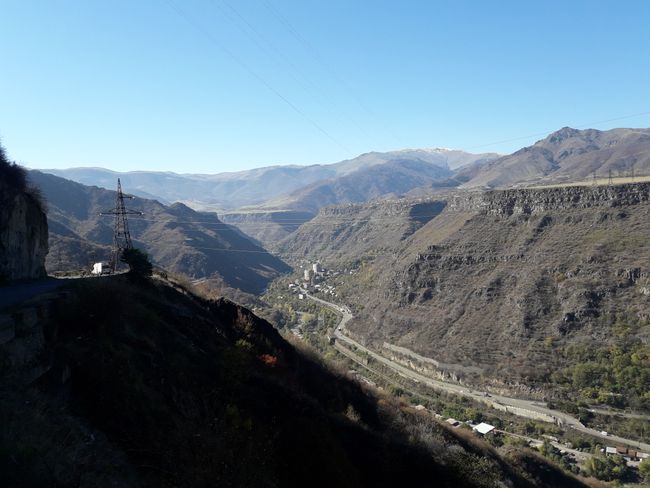
Báo cáo du lịch Ác-mê-ni-a

